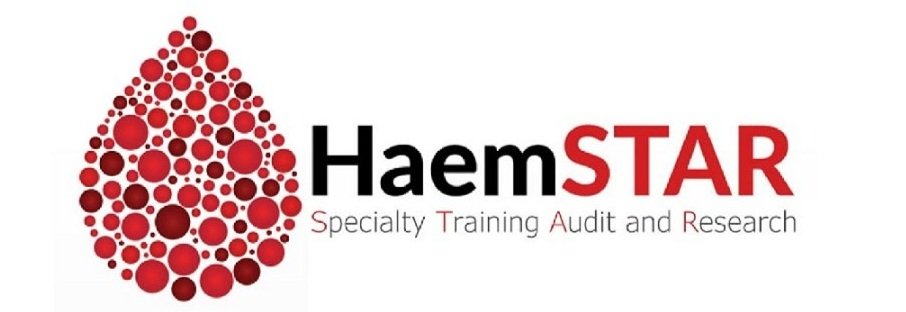HaemSTAR Chair's New Year Message
Writes Richard Buka, HaemSTAR Chair
It’s been a whirlwind six months since taking over as Chair from Pip Nicolson. Leading a fluid, dynamic organisation like HaemSTAR is both a challenge and an opportunity and I’m really looking forward to 2024 and beyond.
In 2023, we added some great talent to our committee, including Olga Tsiamita, Stephen Hibbs, and Lottie Hickman. These additions make a real difference and each committee member is now driving important projects.
ISTH Legacy Funds
My highlight of 2023 has to be the awarding of nearly £30,000 from the ISTH London 2022 Legacy Fund. We’re putting this to great use with £20,000 allocated to travel grants and £10,000 for funding a HaemSTAR fellowship in collaboration with the Nigerian Society for Haematology and Blood Transfusion (NSHBT). This project is driven by Stephen Hibbs, with help from Imelda Bates, and we will be appointing two Nigerian haematology trainees as fellows in the first part of 2024 with the intention of facilitating research projects in Nigeria. We’ve also been able to invite Omalade Awodu, President of NSHBT to BSH to speak in the UK-TReN – HaemSTAR session.
Education
We’ve also introduced some educational offerings and have now hosted three webinars in collaboration with the limbic. So far, over 250 people have attended the webinars and in 2024 we will welcome talks from Suthesh Sivapalaratnam (Friday 19th January, 0830), Bernard Lämmle, Tom Bullock, Simon Stanworth and more to be confirmed. Previous talks are available on demand. Pip and I have also been recording a podcast focusing on advancements and critical appraisal in non-malignant haematology with the first episode to launch on 8th January.
Projects
Despite all these exciting projects, research and audit are our raison d’être, and we have ploughed ahead with several. The highest profile has been RAPIDO, a national audit of reversal agents for DOAC-associated bleeding. The project has over 300 collaborators entering data and has collected data on around 2,500 patient episodes including about 300 where andexanet alfa was given. Data collection closes on 5th January. We will spend a few months analysing the data and writing up with the intention of submitting an abstract to ASH 2024 with a manuscript to be submitted by the end of the summer.
Upcoming projects
I’m particularly excited about the projects coming down the pipeline. Lorna Cain, Christina Crossette-Thambiah, and Stephen Hibbs have been leading a haemoglobinopathy group that is working on, among others, a project looking at the problem of vascular access in sickle cell disease. Eman Hassan has been working on the use of tranexamic acid in anticoagulant-associated heavy menstrual bleeding, with a clinician survey recently completed and gathering 102 responses. Giulia Simini, Sajida Kazi, and Gill Swallow have been developing a project to look at the management of maternal pulmonary embolism including the use of thrombolysis and catheter-directed thrombolysis. This will start with a survey of centres to assess access to catheter-directed thrombolysis, and we will collaborate internationally with groups in Italy and the USA. This survey will come out in January 2024. Olga Tsiamita and Nick Fordham are working on an audit of neonatal thrombocytopaenia management with a data collection form now completed and ready to launch. Phil Weir and Marquita Camilleri are planning a project to look at the use of apixaban in thromboprophylaxis in myeloma. Again, this is in the later stages of planning and the team are looking for funding. Finally, we will be supporting Rupen Hargreaves with his exciting project investigating the occurrence and type of thrombosis in MPN.
Careful management of the HaemSTAR resource
I’m acutely aware that HaemSTAR collaborators are a finite resource. We cannot simply stack-up project after project, expecting people to contribute. This is why we are carefully optimising our workflow and crafting a package of projects that will appeal to different people. That said, we will always look to support creative, enthusiastic clinicians (juniors and consultants) to develop and deliver their projects. However, we are dedicated to ensuring fair recognition for each and every person who contributes to a project with a commitment to collaborative authorship.
HaemSTAR Annual Meeting – 5th February 2024
2024 is going to be a huge year for HaemSTAR and I am grateful for all your enduring support. If you are able to, please come to the HaemSTAR Annual Meeting in Birmingham on Monday 5th February 2024. Attendance is free and importantly, the meeting is tagged onto the ASH/ISTH non-malignant headlines meeting on the following day at the same venue. Whilst most delegates have to pay for this, non-consultant clinicians attending the HaemSTAR day can attend this for free by emailing sophie@hartleytaylor.co.uk once you have signed up for our day.

